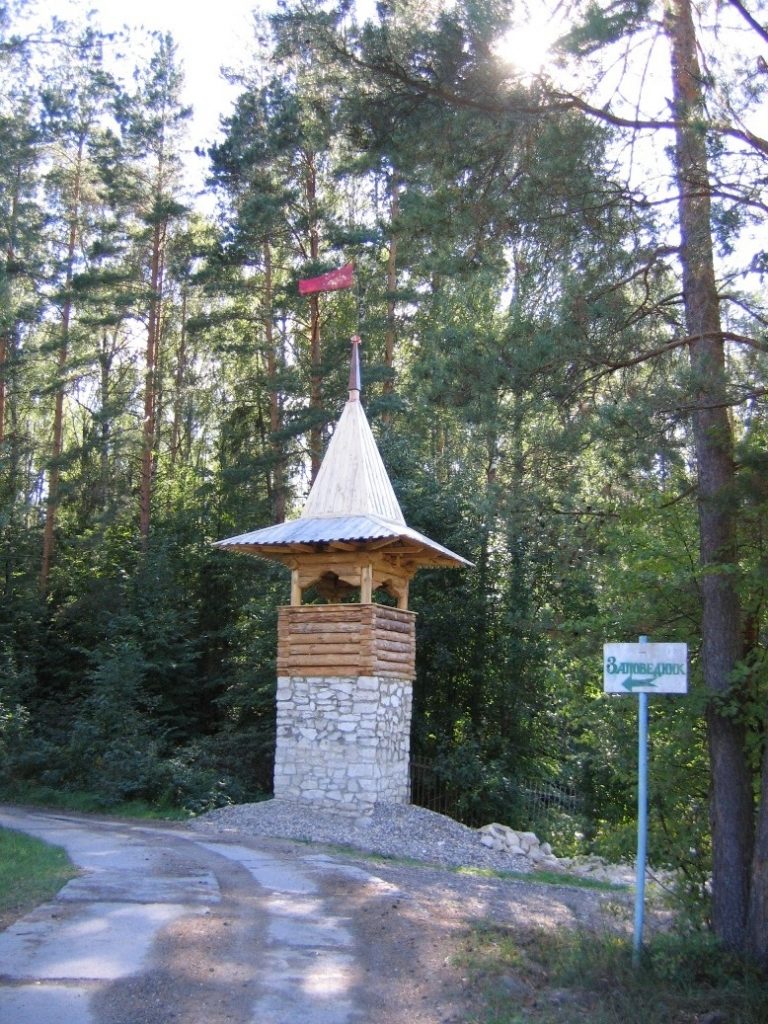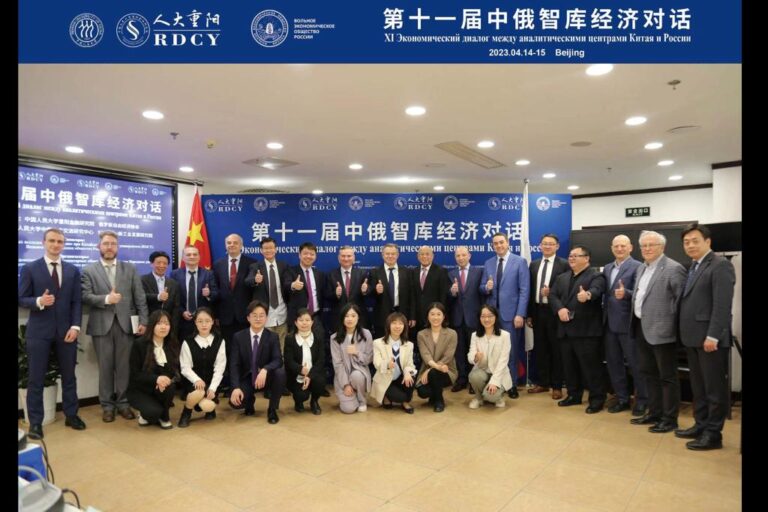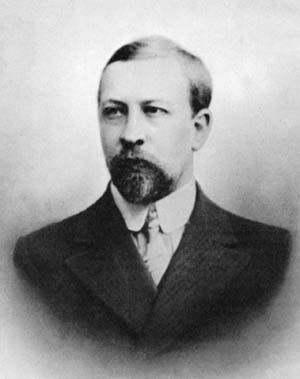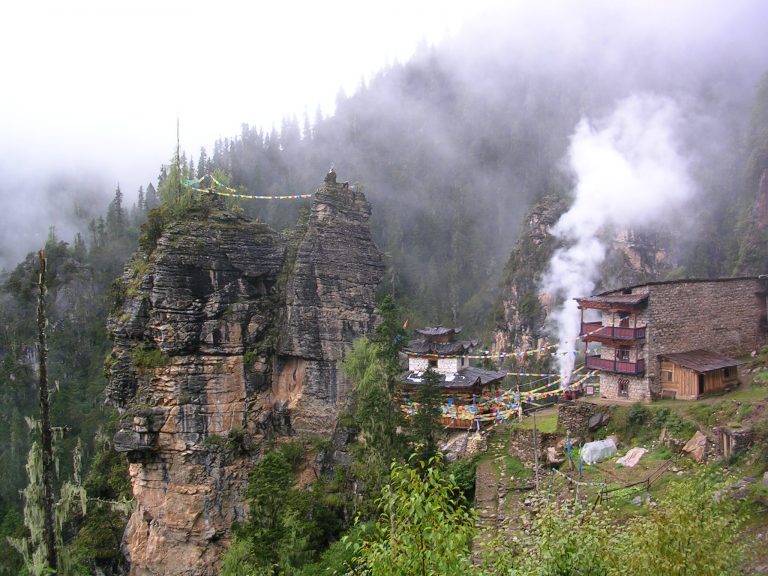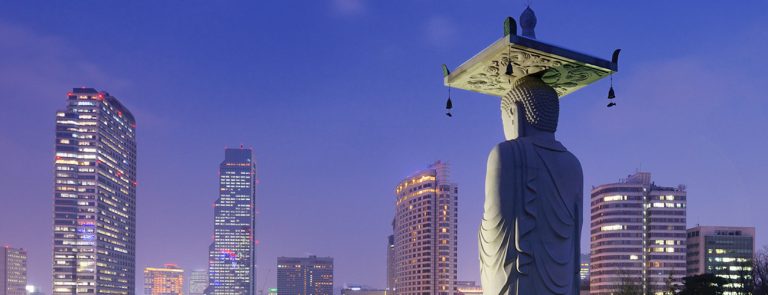Europe and Russia: cooperation, confrontation or synergy ?
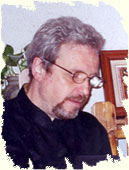
Vladimir V. Maliavin,
Tamkang University
Europe and Russia: cooperation, confrontation or synergy ?
A series of recent events , most notably the disputes over the transportation of Russia’s natural gas to Europe and the war in Georgia in August 2008 has abruptly terminated the period of apparently mutually friendly but largely hypocritical on both sides relations. The policy of EU towards Russia – the policy of treating Russia as European “Neighbor” and Common Spaces of Europe and Russia – has obviously failed. Despite Russia’s apparently submissive position it was altogether wrong on EU’s part to treat Russia as a potential member of united Europe with the stick-and carrot tactics appended to this policy and used so successfully in other cases. Russia is neither Bulgaria nor even Serbia. She is not willing any more to hear the endless admonitions and instructions coming from European Union and has definitely put an end to her tendency towards integration with Europe. It is clear that from now on Russia is going to play an independent role in the world politics in general and on the European continent in particular.
There are many political issues involved in this turn but the fact is that traditionally ambiguous, sometimes outright love-hate relationship between Europe and Russia, the uneasiness of their frequently proclaimed friendship and the “willingness to continue dialogue” as well as mutual distrust are determined by much more obscure and deeply rooted factors related to the nature of European and Russian civilizations and their historical experience. These factors transcend national cultures and even civic culture proper. So, they are even more evident when we deal with the united states of Europe (an old slogan, to be sure) vis-a-vis the Russian Federation.
In the past there were quite a few devoted Russophiles in Europe who claimed that Russian civilization has some outstanding qualities that place her even above Europe and guarantee Russia her universal appeal. Much more people in Russia were no less ardent Europhiles who looked upon Russia as a part, at least potentially, of Europe. Contemporary Russian ruling class is to a very high degree economically and even culturally dependent on Europe. Russia’s rich has invested a lot of money into the European banks and real estate. This is not to deny that in Russia a new wave of Euro-phobia is rising, For the most part it is a reaction to Europe’s failure to appreciate Russia’s willingness to join Europe in recent past as well as a reaction to the pressure that Europe has always exerted on Russia. Drang nach Osten is a familiar slogan, isn’t it? As usual, reaction is somewhat overdoing. Russian nationalists now find the pleasure in despising everything European.
Until now there were no serious attempts to establish the foundation for the plausible comparison, still less a rapprochement of European and Russian civilizations. Mutual prejudices and short-termed political interests proved to be an unsurpassable obstacle on the way to this dialogue. Yet the issue remains as hot as ever. Where should we search for its solution? This question is too complicated and I will confine myself to some preliminary observations.
The first fact about “European community” is that it has a clear identity and well-defined values based on liberal/rationalistic outlook. I am tempted to say that European governments, intellectuals and even European man in the street are even well prepared to fight for these values but the fact is that such standpoint demands consistent and firm negation of fighting itself. Modern Europe deliberately denies political decision proper and prefers to rely on legislative procedures and soft power of culture. It is customary nowadays to assert that EU lacks political subject and constitutes “unidentified political object”.
The list of European values is well-known and does not need elaboration here. The first among them is “rationality” whose main premise is the freedom of judgment and hence criticism. The contents and the very meaning of rationality may change, but criticism as a method of rational knowledge stays. As Z. Bauman puts it, for Europeans “seats in the supreme court could be reserved at all times for reason alone – but no incumbents speaking in its name were truly safe from the critical scrutiny” 1.
Strictly parallel to this respect for rationality runs the modern concept of democracy as a political regime with no privileged access to power, the latter being a sort of “empty place” open for anyone2. The task of modern democracy is precisely to prevent the usurpation of power and, on a broader scale, “the final fixation of the social order”3. Consequently, it is not the “transcendental illusion of social unity” so despised by the postmodern political thought but the division of interests, the differences within society, even all kinds of deviances in cultural life that are celebrated in the emerging European Union which is constructed, one can hardly fail to note, with a notorious thoroughness in formal procedures.
This devotion to the formal accuracy for the sake of one’s difference, this quest for a self-evading identity may seem somewhat comical, a funny contradiction by itself, yet they serve as the best proof of Europe being true to itself! Moreover, it is the main factor behind the undeniable attractiveness of Europe to her neighbors, including of course Russians. This rationalistic democracy or, if you wish, a democratic rationalism is the basis of European humanism, a respect for human rights and freedoms that bestows upon man his dignity and brings comfort to his life – material on the surface but essentially and primary spiritual. It also accounts for the on-going expansion of Europe which began, in fact, long time ago and has been the unchangeable tendency of European history.
The enormous intellectual and civil potential of the European humanistic Weltanschauung notwithstanding, one can’t help discovering a dubious void in its very core: Europe expands precisely at the expense of her values’ emptiness that give free rein to critical scrutiny. Europe, in a word, is strong because it is free to deny herself, and the more Europe is looking for something different the more she is what she is.
It is impossible to deny that life in Europe is marked by the civic discipline, a strict adherence to legislative and moral norms as well as an acute awareness of human dignity and rights. All this has an obvious practical value but what about its theoretical foundations? If we look into history we will see that perseverance in self-denial so characteristic of the European mind has a long history in Europe and, moreover, may stand on a shaky ground.

Let me remind that in the catholic Europe the coming of the New Time was accompanied by the heated discussions on the issue of amour-propre. The prevailing opinion was that self-love, even in the guise of the polite behavior of gentilhomme was incompatible with Christian love. Yet this self-love in the whole of society by some bizarre paradox, perhaps by Divine Providence itself, makes possible order and peace. It was even possible to claim that the society without true religion by virtue of the “enlightened self-interest” “life is carried on with as complete peace, security and ease as if one were in a community of saints… However corrupt such a well-ordered society would be internally and in the eyes of God, there would be nothing in its external appearance which could me more civil, more just, more peaceful, more honest, and more generous” 4. The opposite of course holds true as well. As Duverger de Hauranne, a spokesman for the cause of the rigorists, pointed out by the end of the 17th century, people of his stock “should lead a life like the others in appearance, but as different in spirit as the Son of God is from his creatures” 5. It turns out, therefore, that rigorous religious discipline and secular freedom come strangely close to each other. The gap between them can be crossed and glossed over in one small step.
My point in recalling these long ago forgotten debates is to remind that the secular liberalism asserted itself by putting aside or outright disclaiming its original counterparts: the unbearably rigid ideal of Christian love and God’s grace. Moreover, the more rigid the position of Catholic purists was, the more space was opened for secular values. Finally the moment cam when it was enough just to discard the Catholic Church’s power of salvation – at the expense of the universal hypocrisy from the religious point of view. This leap from religious to secular values forms a real but silenced – because of its illicit character – genealogy of modern Europe.
Catholic tradition, therefore, somehow affirms the continuity of religious and secular values of social life through the assertion of their incompatibility. Protestant religion can be viewed as a reaction to this “hypocrisy” of Catholicism. It adheres to the ideal of “lay ascetics” asserting in its ideal of piety a complete coincidence of religious fervor and everyday activity. For instance, the neo-calvinist “radical orthodoxy” movement totally denies the autonomy of the secular sphere and equates social reality with ecclesia. It claims that the Church does not have politics but is an alternative polis irreconcilable with the states. It does not allow for any secular ethics, its life is morality itself. People outside it have only “semblances of virtue” 6 This direct equation of the Church community with society is basically a sectarian ideal since it establishes radical gap between a few chosen people destined for the Paradise and the outside world. It is easy to see that this sectarianism with its tautologically totalitarian thinking became the basis of the aggressive and dogmatic globalism exemplified by the US foreign policy. In more general terms this trend has pushed to the end the nihilistic “devastation of the Earth” (M. Heidegger).
The overall result of the above-mentioned contradictions was the parallel growth of rational and irrational impulses in the European thought. Finally – the turning point here was probably 1968 – Europe has solved her problem by refusing the realistic theory of knowledge and the idea of objective truth as such. The prevalent opinion today is that the truth is constructed by means of discourse. The idea of identity found in difference confirms and justifies the inner inconsistencies that European mind rests on. Modernity does not just harbor some contradictions. It is a contradiction by itself, it is obliged to produce its own negative double. Hence modern society’s astonishing capacity to find nourishment in the nihilistic impulses in man. Postmodern thought which capitalizes on this limitless self-difference is in fact a playful aftermath of modernity, a sort of modernity-lite.
Let me point to some relevant examples of this attitude. One of them is the “deconstructivist” philosophy of Jacques Derrida. In his book L’autre cap (in English translation “The Other Heading”) Derrida while playing with the similarity between the words cap, cape, captain, capital (two meanings) etc., states that Europe’s destiny is to stand out as a cape, to lead as a captain, to accumulate the cultural “capital” and to be a capital of the world. “It is necessary to make ourselves the guardians of a difference of Europe, but of Europe that consists precisely in not closing itself off in its own identity” 7. Europe, according to Derrida, is universal in its very particularity; identifying with itself “in its own difference as difference with itself” she embodies, no more and no less, the impossible.
Derrida calls in fact for the use of “soft power”, an influence “at a distance” so skillfully applied in European politics today. He is also a typical European – and in particular French – quasi-left intellectual inasmuch as he is willing to justify the universality of Europe’s particularity as a cape standing out of the Eurasian continent and heading for the West (USA?) as well as his distance from the institutional power.
A similar evaluation of European identity at approximately the same time was offered by another prominent European philosopher – J.-L. Nancy in his text : ”Europa: le regard au loin” 8. Nancy develops his own mythology of Europe based on the purported etymology of this word. He claims that Europa refers to looking as far as possible, i.e. looking at the universal and hence at one’s own limit. It is a look that differs from itself, a non-looking look similar to touch, an infinite vision before any vision, an infinite finiteness or a day that is coming to an end (a possible allusion to an equation of the West with the sunset and the evening in some European languages). The essence of Europe, Nancy insists, is the alterity of and in the Other, which postulates an essentially ethical standpoint. Europe, concludes Nancy, “opens the world as its alter ego but it carries this world away in its alienation… It is infinitely finite world which is infinitely open to the absence of the universal horizon in it” 9.
For Nancy Europe in this ideal guise is the embodiment of his postmodern utopia of the “inoperative community” (communaute desoeuvree) 10 where people are not constrained any more by the “transcendental illusion” of social unity and sociality amounts to observing the inner discontinuity of existence. This world is neither human, nor non-human but rather a-human.
Postmodern equation of reality with self-difference may quite aptly describe the nature of the emerging united Europe, but one should be well aware of the fact that such self-alienation, so fashionable nowadays, has some gloomy sides as well. Europe has managed to incorporate in its pluralism its own nihilistic impulses. And there is a danger that the dialectics of reason and historical synthesis which form the real foundation of European identity will degenerate into a simulative negativity permeated with what A. Bloom aptly called “a debonair nihilism” so deeply rooted in modern Western mentality. European world today is in many ways opposed to its own humanistic ideals. It is split into the “included” and “excluded” and produces numerous deceptions: telecommunications that instead of linking people kill human sociality or a violence that paradoxically manifests the solidarity of the outcasts. This Europe is haunted by the ghost of new barbarism. The immigrants that has flooded its cities are the most visible symptom of this sinister – sinister because of its essentially simulative nature – metamorphosis.
The attempts to establish the ground for objective comparison of Western European and Russian (or Orthodox in general) civilizations in Europe are very rare. As a rule, western authors look upon Russia as an inverted, as if reflected in a mirror, image of the West, the latter’s “underworld of the soul”. One of the more elaborated recent descriptions of this kind has been provided by J. Kristeva. As a Western psychoanalyst
Kristeva does not hesitate to criticize the Orthodox spiritual tradition for not letting the personality to affirm its freedom and breeding “depressivity, surly narcissism, the non-performative sensibility and the incapacity for critical reason” 11. Yet she admits that the Western ideals of rationality and freedom have their traps too: “the atomization of solitary egoism” and above all the need for dependence which threatens to transform human being into robot. The Orthodox spirituality, Kristeva claims, can be very helpful to Western mentality because of its “thick sensory texture” and an emphasis on the mutual adherence in society. The West should recognize the “integral, superindividual and communal character” (as Russian philosopher S. Trubetskoy formulated it) of the person 12.
Now we are in a more favorable position to make a comparison between Russia and Europe. Russia’s “submissive position” towards Europe mentioned above is the expression of pretty sophisticated, even paradoxical relations with Europe. It stems from a vision shaped by a sort of symbolic inversion. Russian history itself was constitutes by Russian “soil”’ giving itself to the “kingdom” and its political power. As a consequence, what is near came to be regarded as the most far and the visible was juxtaposed to the real. Hence the persistent Russia’s tendency to draw a sharp distinction between “the real” (the far away) and “the false” (and near), the core and traditional and the degenerated, superficial and contemporary Europe. So Russians have always regarded Europe as a sort of cultural challenge to be imitated and superseded for the sake of… saving Europe itself. One can say that Russia has always been less than Europe and more than Europe. Europeanization (conceived as modernization), fulfilling Europe’s promises has always been the aim of Russian government – “the only European”, in the words of A.Pushkin, in Russian society. The results of this pro-European or, rather, quasi-European tendency are rather dismaying: Russian have looked for re-uniting with Europeans only to win the reputation of being “Tartars inside”. Russia is not Europe, of course, but she has no recognizable face of her own in European perspective and no definite policy regarding Europe as well. A bizarre fact indeed.
This peculiar Russian modesty is, however, an expression of power which European have always mistaken for weakness. It is a sign of faked or inverted identities. It asserts unity in dissimilarity. Speaking in religious terms, Russian Orthodoxy, like Catholicism, accepts the incompatibility of ecclesia and the world but in its most typical expressions (I have in mind especially the tradition of yurodivye) underscores the impossibility to articulate this relationship, its mutually irreducible character. The absence of the Purgatory as a mediator between Heaven and Earth or anything resembling the dialectics of theology in the Orthodoxy is significant in this regard. Heaven and Earth in Russian religion are involved in the relation of, so to say, free nearness and togetherness lacking logical necessity or even the possibility of the secularization. This formal relation is substituted by the inversion of Heavenly and mundane dimensions of Being so that Russia in her actuality and Holy Rus as Russia’s (non-Russian) Real are either brought by violent means into some kind of formal identity or no less violently opposed to each other. Hence the search for the global unity coupled with self-negation so characteristic of Russian mind. It compels Russians to search for their identity in alien worlds while celebrating their uniqueness. Europeans with their concept of dialectically established and infinitely expanded identity are utterly incapable of understanding this.
In spite of this profound mis-understanding between Europe and Russia there is a ground for their rapprochement as well. This ground is the very willingness for being different from oneself. Surely, this situation accounts for an uncertain, “shifting” as it were, identity of Russians in their relation to Europe with its curious mixture of admiration and arrogance. Russia-Europe relations are modeled by a sort of inversion, Russia being the excess of European deficiency (both in the sense of what it is not already and what it is to be). She has always been more than Europe while admitting that she is less than Europe (and actually being that way). This accounts also for the absence of reliable or even stable points of contact between Europe and Russia. This is also the basis of a specific Russian elusive, even deliberately deceptive manner of talking which has many guises (balagurstvo, khlestakovschina etc.). European oversophisticated “discourse” or outright bavardage is its mighty counterpart, though.
What is then the starting point for the European-Russian encounter? Apart from the structural similarity of the “self-differentiation” discourse it is the possibility – always accessible to us – of overcoming oneself in the act of transcendence. And this is the most universal condition of spiritual life requiring if course the elimination of individual-corporate-national pride. It is not, strictly speaking, the rule of cooperation. Rather, it is the promise of the union beyond formal identities achieved through the essentially moral act of self-deference. I call it “synergy”.
There is nothing overwhelmingly new in this proposal. After all the Russians have been for a long time already a noticeable presence in the “core” Europe though an organized, let alone ideologically articulated Russian influence remains almost invisible and, as we can see now, not without a sound reason .
Two interesting factors should be pointed out in the regard:
- Russian geopolitical existence through the sheer virtue of Russia’s
vastness, is marked by internal discrepancy, only vaguely and in ad hoc manner covered by Russia’s pseudo-imperial order. Hence the troubles with democracy in Russia: Russians do not possess a sufficiently stable identity to let their country go free. Every attempt of this kind leads to the schisms and the usurpation of power by largely marginal elements.
- The above-mentioned void in Russian identity to a certain extent reflects
the internal contradictions in a supranational European unity. Suffice to note here a deep division between liberal, tolerant culture of Postmodern political correctness and various conservative trends from Catholic revival or the search for pan-european pre-christian roots among “the New Right” to the upsurge of Islamic fundamentalism. The idea of individual freedom might lead dangerously close to an unlimited skepticism and relativism, a kind of “debonair nihilism” to use A. Blum’s words.
Now Europe has matured as the constellation of national states with the idea of cultural heritage as a historical synthesis. Both America and Russia transcend European historicity in a kind of meta-historical thrust, substantiated by the cult of technology and existential actuality. By growing into the European Union, Europe has moved beyond her historical format thus losing much of its historical-cultural appeal. Europe is a wonderful example of the exaltation of cultural diversity which is not to be imitated elsewhere.
The best way to deal with Russia-Europe relation is not to confine oneself to petty controversies and resentments but to look for the common ground of these two cultural continents. Our common destiny should be based precisely on uncommon truths about both regions. Russia, I believe, is bound to play an absolutely vital role in discovering them.
- Zigmunt Bauman. Europe. An Unfinished Adventure. Cambridge: Polity Press, 2004. P. 126.
- C. Lefort. The Political Forms of Modern Society, Oxford: Oxford University Press, 1986, p. 305.
- Chantal Mouffe. The Return of the Political, London-New York: Verso, 1993, p. 114.
- Jacob Viner. Religious Thought and Economic Society. Durham: Duke University Press, 1978. P. 135-136. Ibid., P. 137.
- James K.A. Smith. Introducing Radical Orthodoxy. Grand Rapids: Baker Academic, 2004. P. 237, 243.
- Jacques Derrida. The Other Heading. Reflections on Today’s Europe. Bloomington: Indiana University Press, 1992. P. 29.
- J.-L. Nancy, Europa: le regard au loin. – Europe. A Literary Review Ibid., P. 11, 13.
- J.-L. Nancy, The Inoperative Community. Minneapolis: University of Minnesota Press, 1991.
- J. Kristeva, Crisis of the European Subject. New York: Other Press, 2000. P. 155. Ibid., P. 152.

